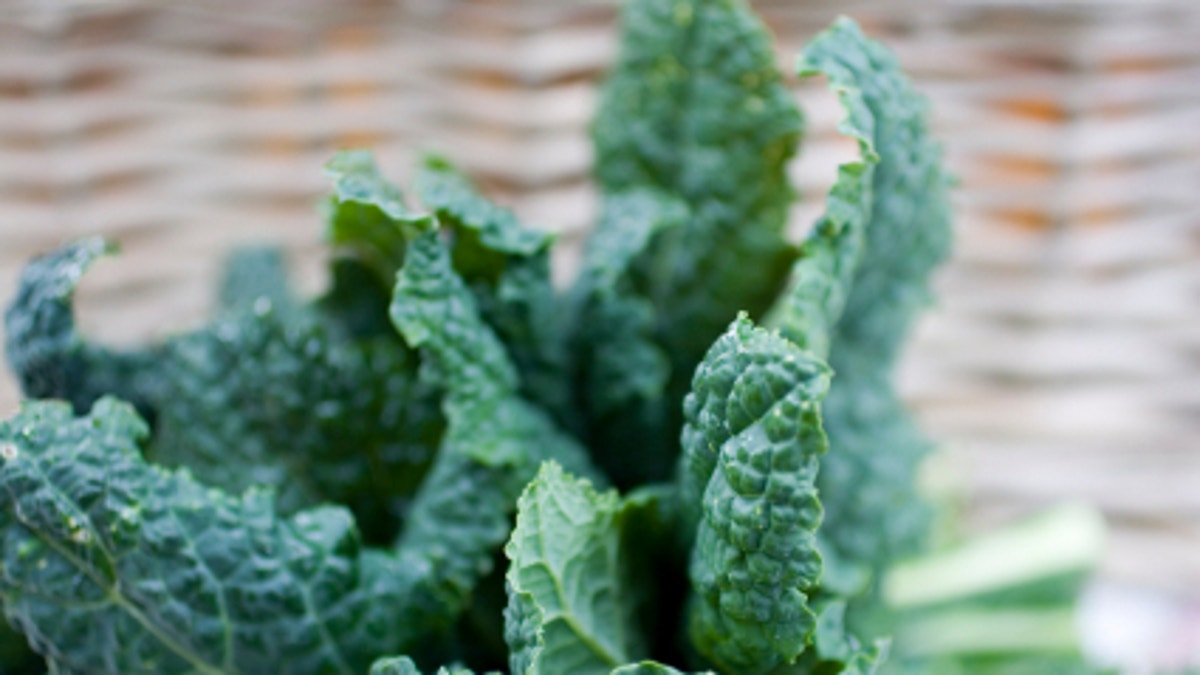
Fresh kale. (iStock)
Each morning, the alarm goes off, and another battle in the never-ending war against drowsiness begins. For Americans, their main defense against a foggy mind is caffeine, with as much as 85 percent of the adult population drinking at least one caffeinated beverage each day. But you’ll be relieved to learn there are other foods and beverages besides coffee (and caffeinated energy drinks) that can help us feel alert.
Staying alert is not simply a proverbial “state of mind”— it’s literal one. The physiological reactions happening in your brain determine your ability to focus and stay awake. Normally, when the brain is active, it burns energy transported by the neurotransmitter called adenosine triphosphate (ATP). The constant degradation of ATP produces just plain adenosine, and when enough adenosine accumulates, it triggers the need to sleep and renew your energy source. The caffeine is affective at keeping us awake because it actually binds to and blocks the brain’s adenosine receptors, delaying the feeling of drowsiness.
However, the chains of events triggered by caffeine don’t end here: With the cells unable to recognize adenosine, they don’t slow down; they actually speed up. Neurons begin to fire more rapidly, and the body begins to sense that something unusual is occurring. The pituitary gland, located at the base of the brain, responds by releasing a hormone signaling the release of adrenaline.
Hence, the coffee buzz.
But staying alert and focused doesn’t revolve entirely around turning on the adrenaline; it’s also about brain health. Memory loss and awareness can all be affected by diet. Therefore, in order to be a more complete, alert, functioning human being, you have to take a two-pronged approach that alters the chemical balance in the brain while also maintaining its health.
Here are eight foods that will help keep you alert and focused.
More From The Daily Meal
Apples
Apples contain high amounts of fiber and natural sugars that breakdown slowly in the body, releasing a steady stream of glucose into the bloodstream and providing the body with a consistent source of energy. Research showed that apples improve neurological health because they contain quercetin, one of two compounds found to reduce inflammation of neurons. Another study published in the Journal of Alzheimer’s Disease connected the consumption of apple juice to an increase in an important neurotransmitter, acetylcholine, which has been found to improve the memories in mice with symptoms of dementia.
Avocados
In a study funded by the Hass Avocado Board, avocados were found to improve lutein levels in the brain, which is related to improved cognition. The avocado’s mono-saturated fats also benefit the information-carrying nerves in the brain.
Breakfast
Although not a food per se, the first meal of the morning — whether it’s eggs, oatmeal, or yogurt — is important for short-term memory recall. Numerous studies have shown that students who eat breakfast perform better on tests than their peers and are able to focus longer.
Dark Leafy Greens
Kale, spinach, and turnip greens are rich in folate, which has been found to keep the brain functioning at full speed. Research showed that individuals with low levels of folate, also known as folic acid or vitamin B9, in their bodies had a higher chance of developing depression. Depression alters the brain’s chemicals and can be inherently energy-draining.
Click here for the Rest of the Foods and Beverages That Will Keep You Alert and Focused








































